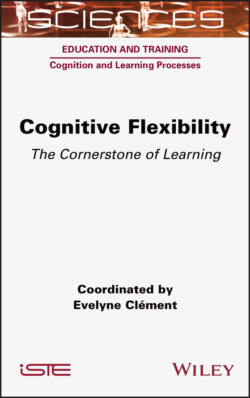Читать книгу Cognitive Flexibility - Evelyne Clement - Страница 10
1.2.2. Associated pathologies
ОглавлениеAttention Deficit Hyperactivity Disorder (ADHD) is often emblematic of pathologies that may be associated with an executive deficit (Willcutt et al. 2005). Recent research has demonstrated the usefulness of cognitive tests, including attention and executive measures, such as flexibility and inhibition to predict the diagnosis of ADHD in children aged 8–15 (Perrault et al. 2019).
Cognitive flexibility difficulties have also been shown in children with pediatric bipolar disorder (Passarotti et al. 2016). Patients with bipolar disorder have a deficit in cognitive flexibility (O’Donnell et al. 2017).
People with autism spectrum disorders also have flexibility difficulties (Hughes et al. 1994; Reed 2018). Zelazo et al. (2002) showed the possibility of predicting theory of mind difficulties in individuals with autism by their performance in cognitive flexibility.
A deficit in cognitive flexibility has also been demonstrated in depression (Gabrys et al. 2018). Many neurodegenerative diseases can be affected by a cognitive flexibility deficit, with the two most iconic being Alzheimer’s disease (Swanberg et al. 2004) and Parkinson’s disease (Lange et al. 2018).
A measure of cognitive flexibility can therefore be useful in the diagnosis of certain pathologies, whether in children or adults.
